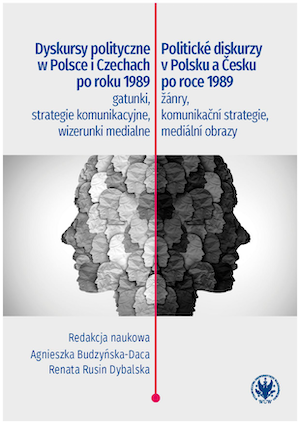Populismus jako komunikační strategie: případová studie SPD a Tomia Okamury
Populism as a Communication Strategy: A Case Study of the Freedom and Direct Democracy Party and Tomio Okamura
Author(s): Denisa Charvátová, Jakub Charvát, Eva Niklesová
Subject(s): Theoretical Linguistics, Applied Linguistics, Studies of Literature, Czech Literature, Philology
Published by: Wydawnictwa Uniwersytetu Warszawskiego
Keywords: populist political communication; Facebook; Czech Politics; Freedom and Direct Democracy Party; Tomio Okamura
Summary/Abstract: Today’s democratic systems face several challenges and problems, many of which are based on current societal sentiments. Although Western societies may enjoy life in prosperity, many of their citizens are dissatisfied because they live in insecurity, or even in fear for their life situation in the years to come. The established parties are unable to respond effectively, and these citizens are forced to look for political alternatives elsewhere. Populist parties, on the other hand, are able to work effectively with fear, thanks to which populism has been on the rise both across all Europe and the USA. Although populism generally appears in the communication of parties at both ends of the one-dimensional right-left political spectrum, in most cases it is associated with extreme right-wing parties. A key element in the success of populist parties is their communication strategy while social networks have become an ideal platform for populist political communication. The social networks provided populist politicians with the opportunity to connect more closely and inexpensively with the people, including the “new” generation of citizens, which has already grown up with social networks. The chapter focuses in more detail on the Czech party system, in which this area was occupied by the Freedom and Direct Democracy party, led by Tomio Okamura. Thus, the main objective of the chapter is to analyse the political communication of the party and of Tomio Okamura, especially the content and form.
- Page Range: 83-96
- Page Count: 14
- Publication Year: 2022
- Language: Czech, Polish
- Content File-PDF

